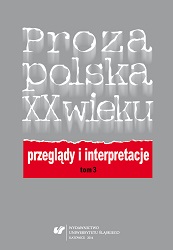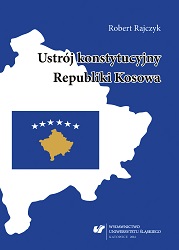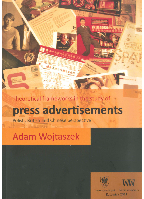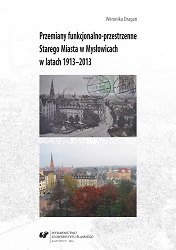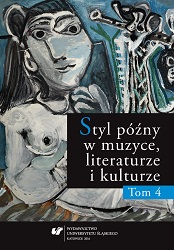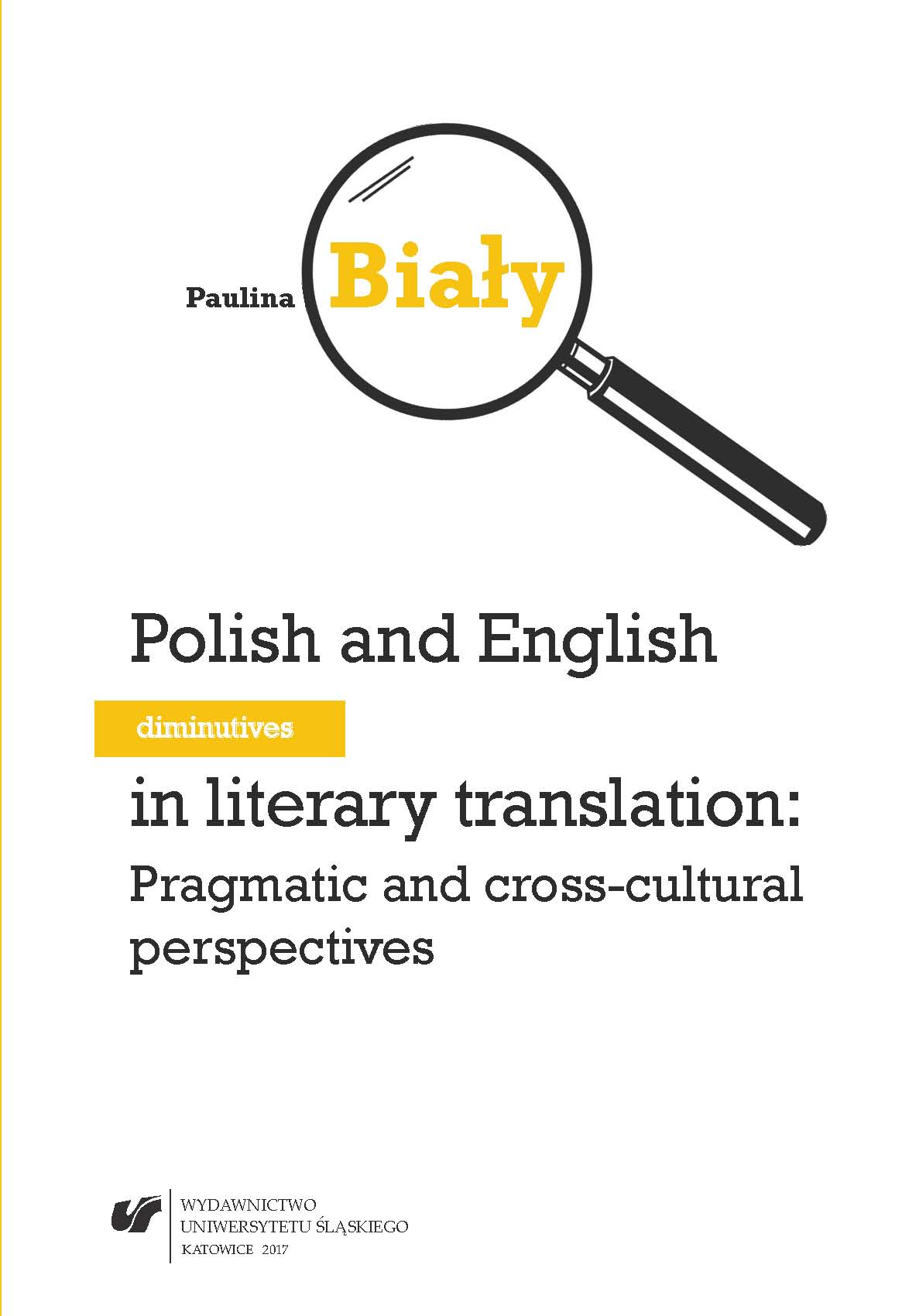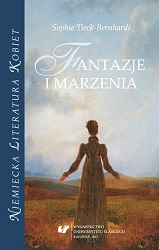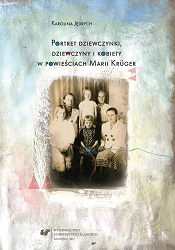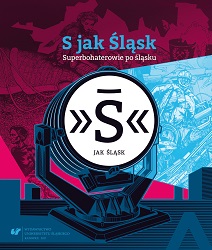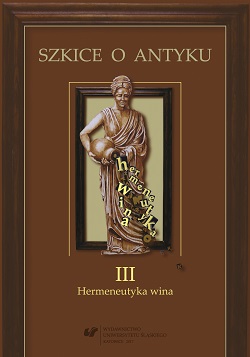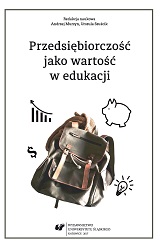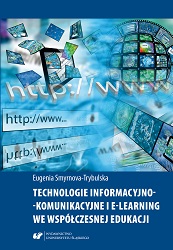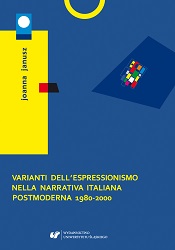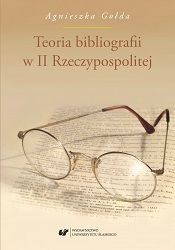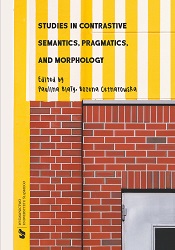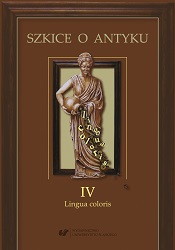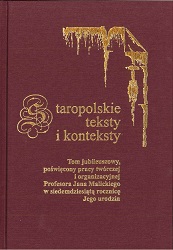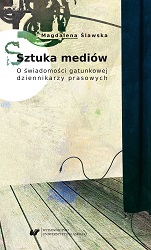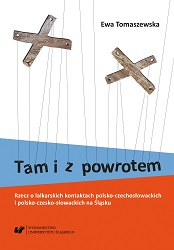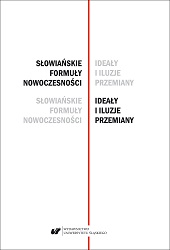Varianti dell'espressionismo nella narrativa italiana postmoderna 1980–2000
Author(s): Joanna Janusz / Language(s): French
Keywords: expressionism; postmodernism; avant-garde; linguistic experiments;
narrative patterns; imaging
The world of contemporary culture puts differences and multiplicity in opposition to the former urge of uniformizing; it eliminates continuity in favour of contingency; it values diversity and otherness over identity and similarity, and it rejects the neatness and safety of theoretical conceptualizations. An attempt at validating the claim that also today a certain aesthetic and literary movement lives on, which for some scholars is nothing more than a historical phenomenon from the past, may seem to be an empty and hopelessly unreal rhetorical strategy. Yet, for the present monograph, the point of departure is an assumption that artistic texts appearing and functioning in a specific cultural environment and tradition should have a feature in common. And to this particular feature, defined as expressionism, the present work has been devoted.The two introductory chapters discuss the origin and evolution of historical expressionism at the beginning of the 20th century, with a special emphasis placed on the Italian varieties of this tendency, i.e. the futurism and the aesthetic views of artists affiliated with the Florentine magazine “La Voce” (1914–1918). Expressionism is usually defined as an artistic movement that originated at the beginning of the 20th century in German-speaking artistic bohemia as an opposition to impressionism. It was only with the passing of time that this novel artistic technique, that also contained a new idea of the world and the man, spread into the field of literature. The basis for the research on the characteristics and constant features of the movement of this period are thus theoretical texts written both by German authors and artists (i.a. Hermann Bahr, Wilhelm Worringer, Gottfried Benn), as well as by Polish (Erazm Kuźma) and Italian scholars (Gianfranco Contini, Paolo Chiarini). The German and Italian artistic and literary avant-garde of the beginnings of the 20th century is, however, merely one of many forms in which the expressionistic tendency has been realized. Literary historians (e.g. Contini, Segre, Isella) frequently emphasise the view that Italian literature from the very beginning has been marked with the attitude of rebellion towards settled canons and aesthetic authorities.This rebellious form of artistic expression has been termed a developmental line of literature. It is undoubtedly an ahistorical tendency, not subordinated to any particular literary movement, but still active and valid as a reflection of a particular intellectual, philosophical, and moral attitude towards reality in which a man lives and creates. The expressionistic tendency understood in this way contains a specific set of features, such as combining contrasts, linguistic experiments, resemantization, discreteness, the episodicity and ellipticity of narration, the chaos of the world depicted, the contingency of events, hyperbolization and distortions of imaging. The expressionistic effect arises as a result of foregrounding one of those features, defined as an expressionistic dominant, and as a consequence of artistic transfiguration (transformation).In the following chapters of the book, the texts written by Italian prose-writers of the end of the 20th century have been subjected to analysis for the presence of understood in this way expressionistic dominant and ways of artistic transfiguration of individual compositional layers of a literary text. The spectrum of the authors under analysis might seem to be too broad or even inconsistent, as it encompasses both the so-called young writers, who made their debut in the 1980s and 1990s (Tondelli, Ammaniti, Nove, Scarpa, and others), as well as more “classical”, well-established authors (Consolo, Bufalino, Volponi, Testori). All the aforementioned authors are brought together by a strong desire to construct a new experimentalism originating from the awareness of a definite crisis which a contemporary category of language has faced.At all the three levels of the works analysed (linguistic, narrative, and thematic), certain permanent features have been distinguished that characterize expressionistic writing. Upon the linguistic layer, it is mainly concerned with going beyond the norms, hybrydyzation of language, incorporating neologisms, archaisms, dialectisms, specialist terms and spoken language into the literary repertory. All these procedures aim at exposing and emphasizing the expressiveness of text. The analysis of narrative patterns and the relations such as author-narrator, text-reader brings out the basic features of expressionistic diegesis, i.e. variability of focalization, metanarrative tendencies, and the simultaneity of episodes. The outcome of these devices is the impression of staticity and subjectivity of time, which are features of the narrative also present in the literature of modernism. The basic components of expressionistic imaginarium are the motifs of a town, moon, and dream, which are also present in the expressionistic literature of the beginning of the 20th century and updated by postmodern narrators by means of combining contrasts, exposing the effect of strangeness, allegory and hyperbolization. An exact specification of what expressionism is today, in times when it is difficult and even awkward to talk about an artistic or literary experiment, seems to be as hard as it was at the beginning of the century, in the age of historical avant-garde, since the historical avant-garde, and therefore expressionism as well, have long become a part of contemporary cannon. The expressionist techniques of artistic means have become common and they have lost their transgressive character; also, their role and way of functioning in an extensive koine of postmodern literature has changed. Those changes, however, do not imply the loss of meaning of artistic productivity.As a style and function of text, and also as a certain philosophy and idea of a man, expressionism is constantly present, acting in the melting pot of multiplicity and multifariousness of contemporary literature that is devoid of limits and theoretical references.The function of expressionism today is mainly communication. It is primarily a very dynamic and changeable artistic code that maintains vitality thanks to its nature, as it makes the literary past and present relate to each other and cooperate. The tradition of expressionism, being a part of the history of literature, generates new and unpredictable effects in postmodern literary texts, in this way becoming an emblematic example of postmodern creative technique. It is a communication code open to all kinds of thematic and stylistic novelities. This unusual combination of classics and experiment gives rise to a new quality, new aesthetic value, perfectly reflecting the polysemy and incongruity of contemporary literature. The expressionist writers of the postmodern epoch faced against the crisis of the functions of language, and the functions of literary language is particular, offer to establish a new relation with reality, which has always been, and still remains, the basic inspiration and matter of literature. This new relation treats reality as a dynamic process, or, rather, as a multiplicity of simultaneous processes that can only be verbalized by expressionist literature. The writer is therefore a recorder of dynamic processes, also of internal, the most intimate, unusual, irrational hallucinations, who tries to grab a fragment or a version of the most conspicuous feature of our times – unpredictable changeability.
More...
